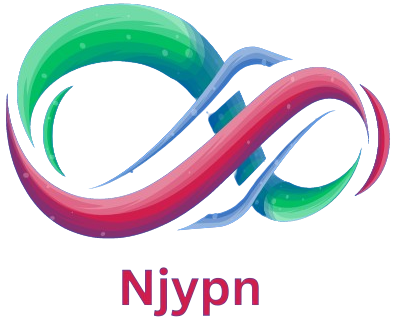From Design to Deployment: A Comprehensive Guide to Web Development
10. Edge Computing
Edge computing is revolutionizing how data is processed by bringing computation and data storage closer to the source of data generation. This reduces latency and improves the performance of web applications, especially for real-time processing tasks like video streaming, IoT data analytics, and interactive gaming. For web developers, understanding and implementing edge computing can lead to more responsive and efficient applications, particularly in scenarios where low latency is critical.
11. Quantum Computing
While still in its early stages, quantum computing holds the promise of solving complex problems beyond the reach of classical computers. Although its direct impact on web development is not yet clear, quantum computing could eventually influence cryptographic practices, data processing, and algorithmic efficiency. Staying informed about quantum advancements can prepare developers for future shifts in how computational problems are approached and solved.
12. Web Standards and Accessibility
Web standards and accessibility are becoming increasingly important as the internet aims to be inclusive for all users. The Web Content Accessibility Guidelines (WCAG) provide standards for making web content more accessible to people with disabilities. Future web development will likely see a stronger emphasis on adhering to these guidelines and incorporating accessibility features by default. This shift will ensure that web applications are usable by everyone, regardless of their abilities.
13. Blockchain Beyond Cryptocurrencies
Blockchain technology is gaining traction beyond its use in cryptocurrencies. Its decentralized nature can be applied to various aspects of web development, including secure transactions, data integrity, and transparent record-keeping. Smart contracts, decentralized finance (DeFi), and blockchain-based identity management are areas where blockchain is making an impact. Understanding how to integrate these technologies can offer new ways to build secure and transparent applications.
14. Data Privacy and Compliance
With increasing scrutiny on data privacy and stricter regulations like the GDPR, CCPA, and the upcoming AI Act in Europe, web developers must prioritize data privacy and compliance. Implementing robust data protection measures, understanding privacy laws, and designing systems with user consent and data security in mind are crucial for maintaining trust and avoiding legal pitfalls. This includes practices like data anonymization, secure data storage, and transparent user consent mechanisms.
15. API Economy and Microservices
The API economy is growing as businesses increasingly rely on APIs (Application Programming Interfaces) to enable interoperability and integrate with third-party services. Microservices architecture, which involves breaking down applications into smaller, independent services, complements this trend by allowing more flexible and scalable development. Developers should be proficient in designing and managing APIs, understanding RESTful services, and working with API documentation and testing tools.
16. DevOps and Automation
DevOps practices are revolutionizing how web Website SEO applications are developed, deployed, and maintained. Automation tools and CI/CD (Continuous Integration/Continuous Deployment) pipelines are central to this approach, enabling faster and more reliable software delivery. Embracing DevOps principles, such as infrastructure as code (IaC), automated testing, and continuous monitoring, can significantly enhance development workflows and operational efficiency.
17. Environmental Sustainability
As concerns about environmental impact grow, web development is also facing pressure to adopt sustainable practices. This includes optimizing code for performance, reducing server energy consumption, and minimizing the carbon footprint of web applications. Developers can contribute to sustainability by implementing energy-efficient algorithms, leveraging green hosting providers, and designing applications that use resources judiciously.
18. Collaboration and Remote Work
The rise of remote work has transformed collaboration in web development. Tools and platforms for remote communication, project management, and version control are essential for teams distributed across various locations. Adapting to remote work requires strong communication skills, effective use of collaboration tools, and strategies for managing time and productivity in a virtual environment.
19. Emerging Programming Languages and Paradigms
New programming languages and paradigms continue to emerge, offering fresh approaches to web development challenges. Languages like Rust and TypeScript are gaining popularity for their safety features and enhanced development experience. Functional programming paradigms, which focus on immutability and pure functions, are also influencing modern development practices. Exploring these new languages and paradigms can provide developers with innovative tools and methodologies for tackling complex problems.
20. Future of Front-End and Back-End Technologies
Front-end development will continue to evolve with advancements in frameworks and tools. Technologies like Web Components, server-side rendering (SSR), and static site generation (SSG) are gaining traction for their benefits in performance and SEO. On the back-end, serverless architectures, microservices, and containerization with Docker and Kubernetes are shaping how applications are built and deployed. Staying updated with these technologies and understanding their trade-offs will be essential for creating efficient and scalable web applications.
Preparing for the Future: Skills and Mindset
To effectively navigate the future of web development, developers should cultivate the following skills and mindsets:
- Adaptability: The tech landscape changes rapidly. Being adaptable and open to learning new technologies and methodologies is crucial for staying relevant.
- Problem-Solving: Embrace a problem-solving mindset to tackle challenges creatively and efficiently, whether they involve performance issues, security concerns, or user experience improvements.
- Collaboration: Strong collaboration skills are essential for working with cross-functional teams, especially in remote or hybrid work environments.
- Continuous Improvement: Adopt a mindset of continuous improvement by regularly seeking feedback, iterating on solutions, and refining your development practices.
Conclusion
The future of web development is brimming with opportunities and challenges. By staying informed about emerging trends, adopting new technologies, and continuously honing skills, developers can stay at the forefront of this dynamic field. As the web continues to evolve, the ability to adapt and innovate will be key to creating impactful and engaging digital experiences. The journey ahead promises exciting developments and endless possibilities for those who are ready to embrace the future of web development.
